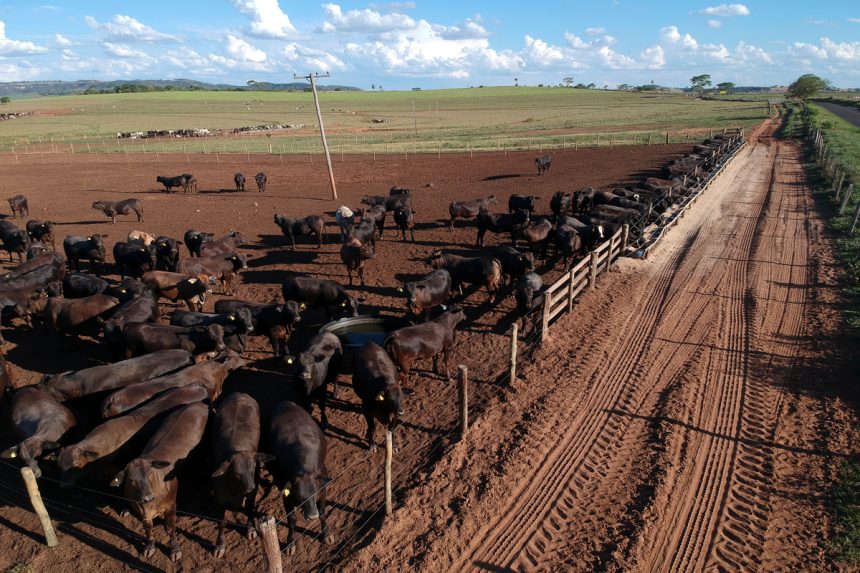In a high-stakes move to protect the American cattle industry, the U.S. government is investing $750 million in a new fly-breeding facility in southern Texas. The goal? To mass-produce sterile New World screwworm flies that will stop a devastating flesh-eating parasite from crossing the Mexican border into Texas. “Farm security is national security,” said Secretary Brooke Rollins, emphasizing the urgent need for containment.
A Strategic Battle at the Border
The new facility will be built on Moore Air Base near Edinburg, Texas, just 20 miles from the U.S.-Mexico border. Secretary Rollins announced that the factory will begin producing and releasing billions of sterile male screwworm flies within a year. These flies will mate with wild females, rendering their eggs infertile and halting the parasite’s reproduction cycle.
The project echoes a successful U.S. campaign from the 1970s, when the parasite was eradicated using a similar method. But recent outbreaks in Mexico—some just 370 miles from Texas—have reignited fears.
Massive Economic Stakes for the U.S.
If the screwworm reaches Texas, the cost could be catastrophic. The USDA warns of potential multi-billion-dollar losses, higher beef prices, and serious threats to household pets, wildlife, and even humans. “All Americans should be concerned,” Rollins warned, “but it’s certainly Texas and our border and livestock producing states that are on the front lines of this every day.”
A Multi-Pronged Defense Plan
Alongside the new fly factory, the USDA plans to deploy $100 million worth of additional technologies. This includes:
- Fly traps and lures
- Horse-mounted “tick riders” to patrol the border
- Specially trained dogs to detect the parasite
Rollins also confirmed that imports of cattle, horses, and bison from Mexico remain suspended until Mexico pushes the pest back toward Panama, where it had previously been contained.
Mexico’s Role and Cross-Border Coordination
The Mexican cattle industry has suffered repeated blows from the screwworm outbreaks. On Friday, Mexico’s Agriculture Secretary Julio Berdegué Sacristán and Rollins signed a new bilateral screwworm control action plan. This includes setting up government-certified corrals and deploying fly-attracting traps within Mexico to limit livestock movement and improve monitoring.
On X (formerly Twitter), Berdegué posted: “We will continue with conversations that lead to actions that will permit the reopening of livestock exports.”
Ramping Up Production: No More Outsourcing
Until now, the U.S. has relied heavily on Panama and Mexico for sterile fly production. The Panama factory can breed 117 million flies per week; Mexico’s facility adds 100 million more. But the new Texas plant will top them both—with the capability to produce 300 million sterile flies weekly.
President Donald Trump’s administration aims to reduce U.S. dependency on foreign production. “It’s a tactical move that ensures we are prepared and not just reactive,” Rollins said.
The construction of the $750 million fly factory marks a major turning point in U.S. agricultural biosecurity. As flesh-eating parasites threaten to cross into Texas, this massive investment is not just about pest control—it’s about protecting an entire industry and national food security. With partnerships forming across borders and technology scaling up, the U.S. is taking no chances. As Secretary Rollins put it, “All Americans should be concerned”—and now, they’re taking action.






